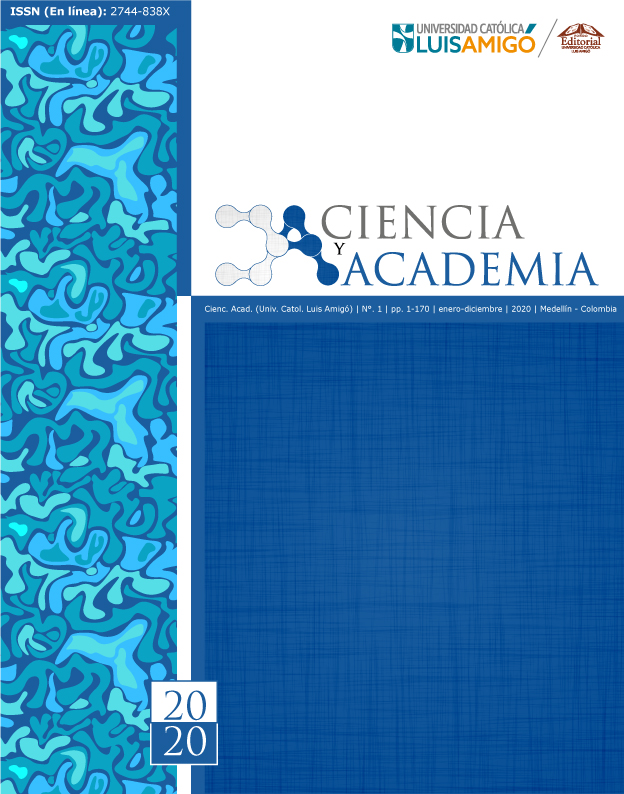Strengthening the self-concept in children with intellectual disabilities and health needs
DOI:
https://doi.org/10.21501/2744838X.3731Keywords:
Intellectual disability, Health needs, Self-concept, Strategies, Inclusion.Abstract
The present article of academic reflection arises in the light of the experience of social practice and is oriented towards the strengthening of self-understanding and self-esteem in children and adolescents with intellectual disabilities and health needs, as one of the problems with significant occurrence to develop teaching and learning processes. In this research, a reflection was made on the evolution of the concept of intellectual disability in educational settings and health needs due to cancer. Finally, a series of strategies are suggested to successfully deal with the accompaniment of children and adolescents to deal with difficulties in health and intellectual disability. Concluding that disability is a matter of human rights and, therefore, all factors that threaten promotion, development, education, and self-concept must be eliminated in order to improve their personal and / or social difficulties.Downloads
References
Blatt, S. (2015). Problemas de salud crónicos en niños. Manual MSD. Versión para público general. https://www.msdmanuals.com/es-co/hogar/salud-infantil/aspectos-sociales-que-afectan-a-los-ni%C3%B1os-y-a-sus-familias/problemas-de-salud-cr%C3%B3nicos-en-ni%C3%B1os.
Consejo Nacional de Política Económica y Social (Conpes Social). (2013). Política Pública Nacional de Discapacidad e Inclusión Social. https://discapacidadcolombia.com/index.php/legislacion/177-politica-publica-nacional-de-discapacidad-e-inclusion-socia.
Coronel, C. P. (2018). Problemas emocionales y de comportamiento en niños. Revista Electrónica de Psicología Iztacala, 21(3), 1119-1136. https://www.medigraphic.com/pdfs/epsicologia/epi-2018/epi183m.pdf.
Escalante-Barrios, E. L., Coronell-Gutiérrez, M. y Narváez-Goenaga, V. (2016). Juego y lenguajes expresivos en la primera infancia: Una perspectiva de derechos. Universidad del Norte.
Espada, M. C. y Grau Rubio, C. (2012). Estrategias de afrontamiento en padres de niños con cáncer. Psicooncología, 9(1) 25-40. https://doi.org/10.5209/rev_PSIC.2012.v9.n1.39136.
Instituto Nacional del Cáncer. (8 de octubre de 2018). NIH. Institutos Nacionales de la Salud de EE. UU.: https://www.cancer.gov/espanol/tipos/infantil/hoja-informativa-ninos-adolescentes.
Quiroz-Trujillo, A., Velásquez-Velásquez, Á. M., García-Chacón, B. E. y González-Zabala, S. P. (2002). Técnicas interactivas para la investigación social cualitativa. Fundación Universitaria Luis Amigó.
Ramírez-Echavarría, C. O., y Soto-Suaza, M. C. (2019). La importancia del autoconcepto en los niños con discapacidad intelectual y dificultades en salud.
Ricardo Sanín, M. (2018). El autoconcepto en niños con cáncer: una propuesta de fortalecimiento a la luz de la experiencia en la Fundación Ayúdame a Vivir - Funvivir, en Cartagena - Colombia [tesis de pregrado, Pontificia Universidad Javeriana]. Repositorio Pontificia Universidad Javeriana. https://repository.javeriana.edu.co/bitstream/handle/10554/35350/Trabajo%20de%20grado%20-%20Melisa%20Ricardo%20Sanin%205%20julio%202018.pdf?sequence=1&isAllowed=y.
Sabeth, E. N. (2002). El autoconcepto en niños con necesidades educativas especiales. Revista Española de Pedagogía, LX(223), 559-572. https://revistadepedagogia.org/wp-content/uploads/2007/06/223-09.pdf
Published
How to Cite
Issue
Section
License
Copyright (c) 2020 Ciencia y Academia

This work is licensed under a Creative Commons Attribution-NoDerivatives 4.0 International License.
La revista y los textos individuales que en esta se divulgan están protegidos por las leyes de copyright y por los términos y condiciones de la Licencia Creative Commons Atribución-No Comercial- 4.0 Internacional. Permisos que vayan más allá de lo cubierto por esta licencia pueden encontrarse en http://www.funlam.edu.co/modules/fondoeditorial/






